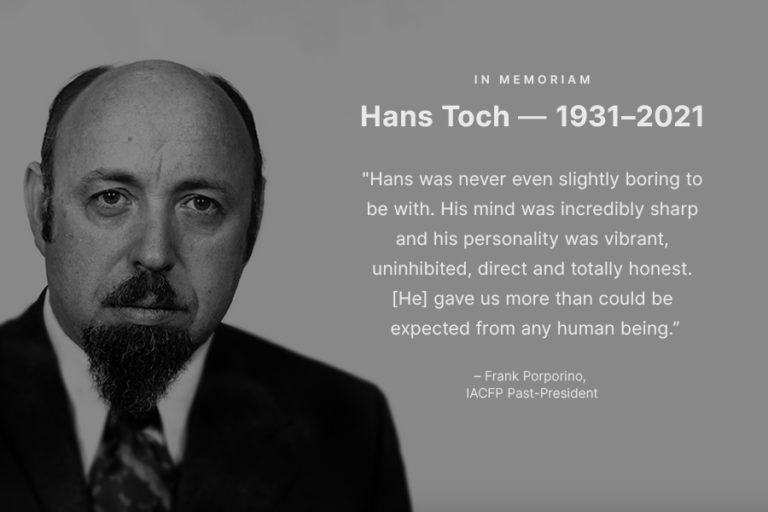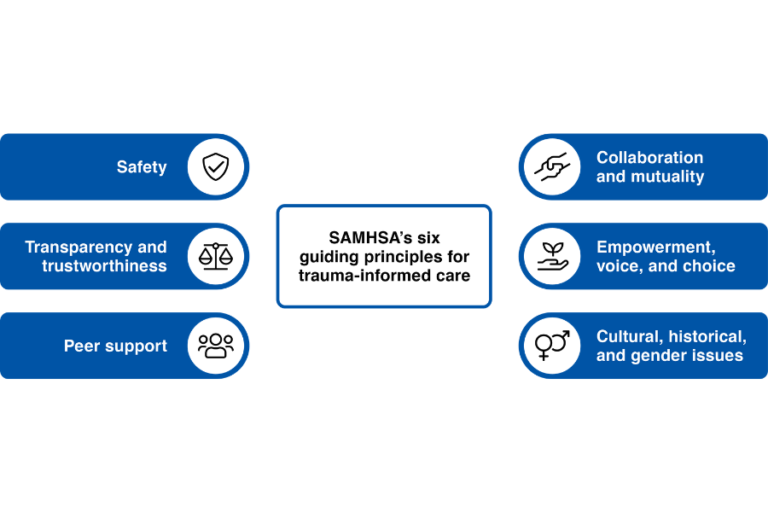We've compiled top highlights from recent news, research, and resources across the world for our latest IACFP International News summary. Our topics for September and October include IACFP updates, recent research and practice highlights, policy updates, and upcoming conferences. 1. IACFP Updates IACFP Community Corrections Project UpdateThe IACFP has initiated a project to advance research on how community corrections agencies in countries throughout the world provide programs and services to individuals experiencing mental health challenges (including serious mental illness). The purpose of the project is to document how programs and services contribute to client well-being, … [Read more...] about IACFP International News, Research, and Resources for Sept/Oct 2021
New Research Connects Criminal Justice Workforce to Incarceration Rates
Although many scholars have attempted to understand why incarceration rates often differ among countries, there is no current research examining whether there is a connection between the size of a nation's criminal justice workforce (specifically those handling cases prior to the point of incarceration) and that country's incarceration rates. Here, we summarize research by Alyssa K. Mendlein that explores the connection between front-end criminal justice system workforce size and incarceration rates across multiple countries, published in International Criminology in April 2021. Purpose of Research For this study, Mendlein combined a conflict perspective and a systems approach to … [Read more...] about New Research Connects Criminal Justice Workforce to Incarceration Rates
IACFP Student Research Grant Award Report: Treatment for Mental Illness in Jail
First, I want to thank the International Association for Correctional and Forensic Psychology (IACFP) Board of Directors for awarding me the Student Research Grant Award in support of my dissertation project, "Implementing a brief treatment program for justice-involved people with mental illness in jail: A mixed-methods hybrid 1 randomized controlled trial.” I am grateful not only for IACFP's generosity, but also for the recognition of this project, in which we are providing treatment to people with serious mental illness in jail—thank you for supporting this work and helping make this study possible. Background There are five times more people with serious mental illness in jails … [Read more...] about IACFP Student Research Grant Award Report: Treatment for Mental Illness in Jail
IACFP Remembers Hans Toch, 1930-2021
Hans Toch, a towering figure in the academic discipline of criminology and criminal justice, died June 18 at his home in Albany, New York. Born April 17, 1930 in Vienna, Austria, Toch escaped the ravages of the holocaust, emigrating initially to Cuba and then to the United States. He earned his B.A. at Brooklyn College in 1952 and his Ph.D. in psychology at Princeton in 1955. He served in the U.S. Navy and was a Fulbright Fellow in Norway, a visiting Lecturer at Harvard, and a member of the psychology department at Michigan State University before being recruited in 1967 as a founding faculty member of the School of Criminal Justice at the State University of New York at Albany, the first … [Read more...] about IACFP Remembers Hans Toch, 1930-2021
IACFP International News, Research, and Resources for July/August 2021
We've compiled top highlights from recent news, research, and resources across the world for our latest IACFP International News summary. Our topics for July and August include international resources for treatment of justice-involved individuals, mental health research and training, and upcoming conferences. 1. Treatment of Justice-Involved Individuals Book Revw of CBT with Justice-Involved Clients, Criminal Justice and Behavior, Online May 2021The book review of CBT with Justice-Involved Clients first appeared online in May 2021 and will be included in a future print issue of Criminal Justice and Behavior. The book review was written by Mark E. Olver and Keira C. Stockdale. The … [Read more...] about IACFP International News, Research, and Resources for July/August 2021
Research Indicates VR Highly Effective for Correctional Rehabilitation
Although virtual reality (VR) technology has been successfully utilized for psychological treatment and learning for many years, its use in correctional facilities for the purpose of correctional rehabilitation has been slower to manifest. Here, we summarize research by Bobbie Ticknor exploring the benefits and challenges of using VR for correctional rehabilitation, published in Criminal Justice & Behavior in September 2019. Technology in Correctional Facilities Correctional facilities have long integrated technology into their daily practices for the purposes of supervision and assessment. More recently, additional efforts have been made to begin utilizing technology for … [Read more...] about Research Indicates VR Highly Effective for Correctional Rehabilitation
Trauma-Informed Care in Youth Detention: A National Portrait
Trauma-informed care is one framework that can support youth who have been involved in the court system (Epstein & Gonzales, 2017; Kerig, 2012; Saar et al., 2015). This care framework requires a basic realization and understanding of how traumatic experiences might impact individuals and communities (Substance Abuse and Mental Health Services Administration, 2014). Trauma-informed care aims to recognize this trauma, promote healing, and avoid re-traumatization. Here, we provide an overview of existing practices, current projects, and areas for further research. Trauma-Informed Care The Substance Abuse and Mental Health Services Administration [SAMHSA] (2014) has played a crucial … [Read more...] about Trauma-Informed Care in Youth Detention: A National Portrait
The Application of Social Learning Theory to the Correctional Setting by Case Examples
The purpose of this article is to provide an overview of social learning theory including its theoretical foundations, explanatory concepts, case examples, and how it applies to a correctional setting as a general theory of crime and deviant behavior. Social Learning Theory: The Basics Social Learning Theory (SLT) reinforces the idea that learning occurs within a social context. People learn from observing others’ behaviors and the outcomes of those behaviors (Astray-Caneda, Busbee, & Fanning, 2011). Albert Bandura, a major contributor to the field of social learning, explains that social learning is a continuous and reciprocal interaction between cognitive, behavioral, and … [Read more...] about The Application of Social Learning Theory to the Correctional Setting by Case Examples
IACFP International News, Research, and Resources for May/June 2021
We've compiled top highlights from recent news, research, and resources across the world for our latest IACFP International News summary. Our topics for May/June include recent features on prison reform and pandemic response, new research, and upcoming conferences. 1. International News “Global Prison Trends 2021” Report Available"Global Prison Trends 2021" was recently co-published by Prison Reform International and the Thailand Institute of Justice. The special focus for this issue is how authorities respond to different crisis situations, how prisons and the people within them are affected, and considerations for what measures authorities can put in place for better crisis … [Read more...] about IACFP International News, Research, and Resources for May/June 2021
New Research on the Efficacy of Restorative Justice in Criminal Justice Settings
Although restorative justice has become more regularly utilized in workplace and school settings, its use in the criminal justice system is still often met with criticism. A new study by Masahiro Suzuki, from Central Queensland University, and Xiaoyu Yuan, from Shanghai University of Political Science and Law, seeks to provide empirical evidence for why and how restorative justice works within a criminal justice setting for both offenders and victims. This article provides a summary of their research, which was approved for publication in Criminal Justice and Behavior and published online February 20, 2021. What Is Restorative Justice? Restorative justice is a method of justice … [Read more...] about New Research on the Efficacy of Restorative Justice in Criminal Justice Settings
The Impact of Technological Advancements on Continued Contact During Incarceration: An Exploratory Study on Tablets in Prison
Continued family contact during incarceration has been found to improve in-prison behavior and reintegration upon release. The value of prosocial contacts has been consistently found through empirical work that examined in-person visitation and phone calls. In recent years, computerized tablets have become more commonplace across U.S. prisons, yet little to no research has evaluated how this advancement in communication has altered experiences of incarceration. While prior research has established the importance of continued prosocial contact, we are unaware if having access to video and electronic communication changes the effect of continued contact during incarceration. Project … [Read more...] about The Impact of Technological Advancements on Continued Contact During Incarceration: An Exploratory Study on Tablets in Prison
IACFP’s Mental Health in Community Corrections: International Perspectives Project
The International Association for Correctional and Forensic Psychology is excited to announce the launch of a new project to advance research: Mental Health in Community Corrections: International Perspectives. This project explores the range of how services are provided, internationally, for people in community corrections who experience mental health challenges, including serious mental illness. The project’s goal is to advance research on how programs and services are provided to a population with high needs, and the extent to which that population can be best served in the community. The Mental Health in Community Corrections project was approved by IACFP’s Board of Directors in June … [Read more...] about IACFP’s Mental Health in Community Corrections: International Perspectives Project













